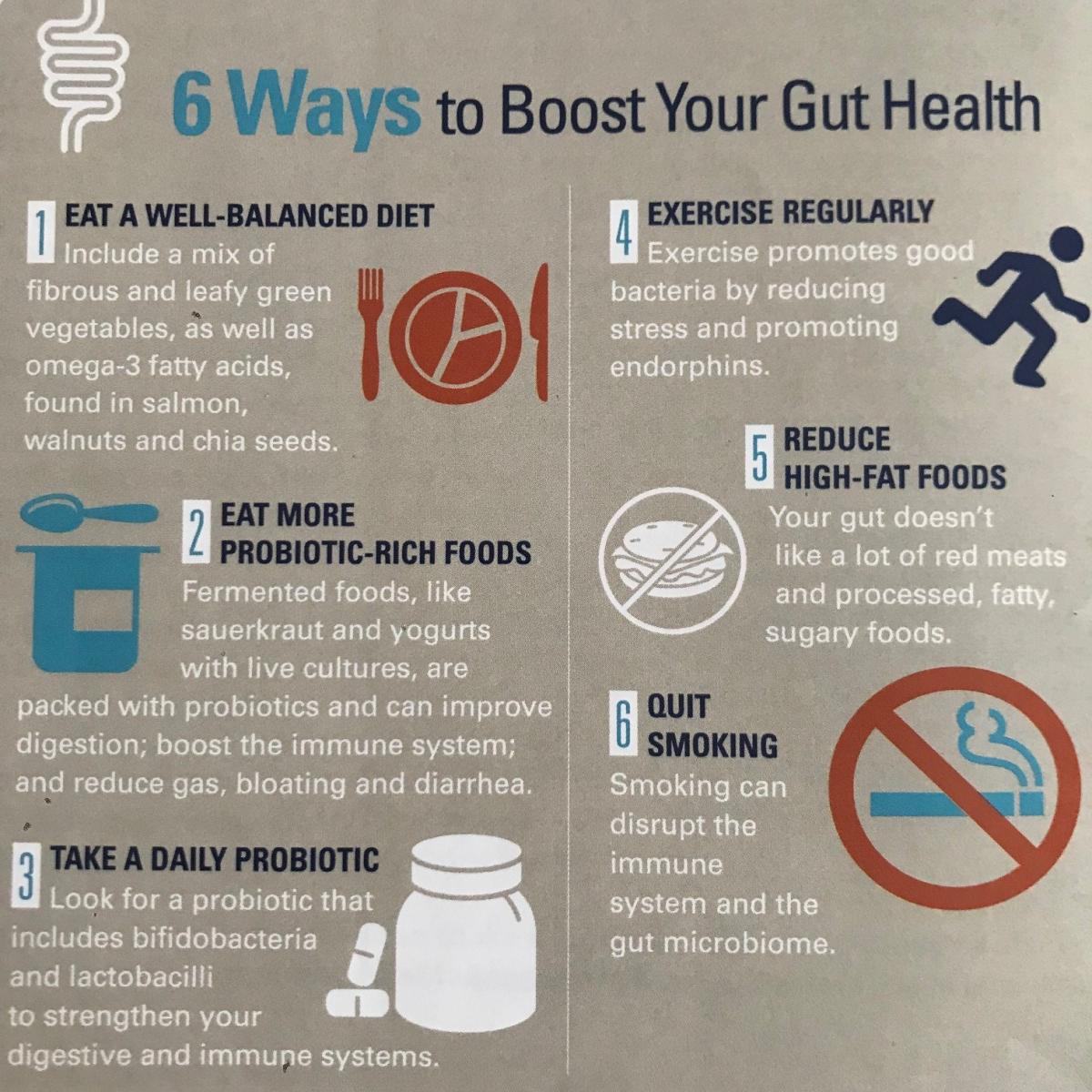How your gut affects your whole body

The next time you’re feeling down, instead of blaming it on the weather or a stressful day at work, you may want to look at what you’re putting in your gut.
One of the main functions of your stomach is to store food until the gastrointestinal tract (gut) is ready to receive it. Medical experts have found that the brain communicates with the gut and the microbes (bacteria, viruses and fungi) that line your stomach, colon and intestines. The microbes are in constant communication with your brain, affecting everything from your mood, emotions, sleep, metabolism and health.
Schedule an appointment with your of our doctors. Call 800.922.0000.
During digestion, these microbes make vitamins and send signals to the immune system as well as molecules that can affect how the brain works. If your gut or microbes are not functioning properly, they can send signals to your brain, which can affect your mood and other aspects of your health.

We are still learning how the gut impacts your health and how it can be manipulated. But we do know that an unhealthy gut or one that is out of balance, (called dysbiosis) can increase your risk for obesity and illnesses like diabetes, and can play a small role in depression and colon cancer.
Experts hypothesize that when the gut microbes are out of balance, your gut walls become more porous, which allows more toxins to enter into the bloodstream. There also appears to be an association with diseases like rheumatoid arthritis, lupus, inflammatory bowel diseases and chronic fatigue due to the gut’s affect on the immune system.
For optimal health, it is best to have a diversity of bacteria in your gut, he says. This can be achieved by your diet and other lifestyle factors.
Eating a well-balanced diet that includes a mix of fibrous and leafy, green vegetables as well as omega 3 fatty acids like that found in salmon can help promote a healthy and diverse microbiome. These are also called prebiotics. Also limit your intake of red meats, high fat foods and simple carbohydrates.
Also eat foods rich with probiotics – the good bacteria. Fermented foods like sauerkraut and yogurts with live cultures, are packed with probiotics, which can help you digest food better, boost the immune system and may even help with bloating, gas and diarrhea.
Taking a daily probiotic may also strengthen your digestive and immune systems. Look for a probiotic that includes bifidobacteria and lactobacilli, which have been shown to provide the most benefits to digestive health.
Exercise promotes good bacteria in your gut by reducing stress and promoting endorphins. Stress on the other hand, can disrupt the immune system and the gut microbiome. As can smoking and obesity.
We still have a lot to learn regarding the health of your gut and its relationship to your health. Eating better, exercising and being more mindful about eating foods rich in probiotics are first steps you can take to improve the health of your gut, and in turn, it will take care of you.



